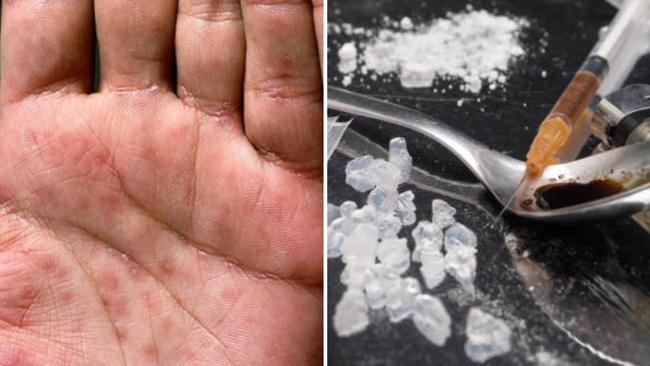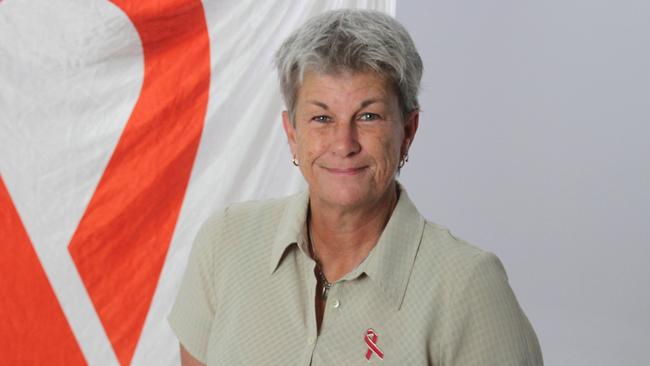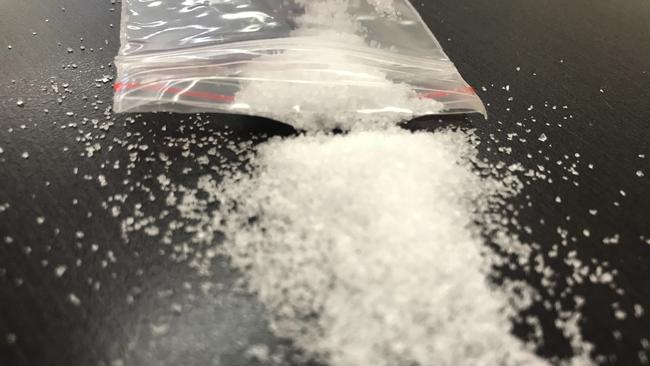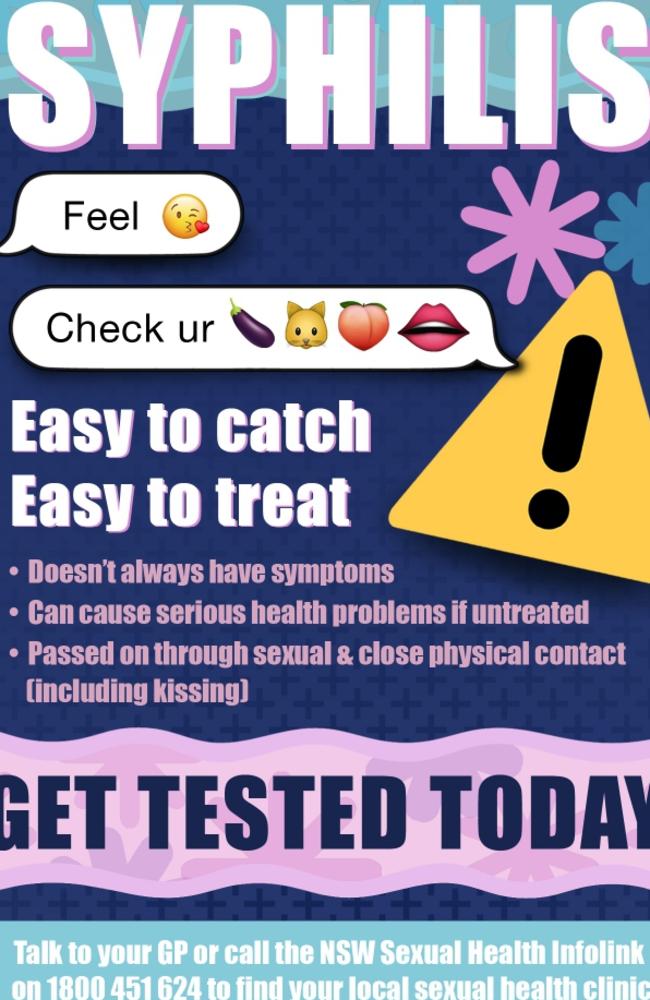North Coast Population and Public Health’s Jenny Heslop warns of syphilis outbreak in northern NSW
High-risk “chemsex” is partially to blame for a syphilis outbreak in northern NSW. Here’s why authorities are worried.

Community News
Don't miss out on the headlines from Community News. Followed categories will be added to My News.
Meth-fuelled orgies are partially to blame for a “hideously scary” syphilis spike in northern NSW, according to a public health expert.
Sex fuelled by drugs like ice is known as “chemsex” and considered an ideal breeding ground for sexually transmitted infections (STI) to spread.
North Coast Population and Public Health sexual health manager Jenny Heslop said she has “never seen anything like” the ongoing outbreak in nearly four decades on the job.
Ms Heslop said the STI was more rampant each year.
Almost 100 (98) cases were recorded across the North Coast health district in 2022, while 44 cases were recorded in 2021 and 31 cases in 2020.

Ms Heslop said she was particularly concerned about the number of patients – particularly pregnant women – presenting with late-stage syphilis, “which is the scariest thing”.
She recently assisted a pregnant young woman with syphilis in her third trimester, who was warned of the “horrible” consequences of passing the infection to her unborn child.
Ms Heslop said in recent months she assisted more than 10 pregnant women with syphilis.
“It’s hideously scary,” she said.
Ms Heslop said the risk of stillborn birth was greatly increased by late-stage syphilis, which can also leave horrendous and very visible wounds.
“I’ve seen a woman come in with large open sores which you can put two fists in, as well as huge genital and anal ulcers” she said.
Ms Heslop warned the infection can cause severe neurological issues and “permanent disability” because it can “spread to the eyes and brain”.
She said she was increasingly dealing with the impacts of “chemsex”, involving “young heterosexuals participating in group sex” on drugs like methamphetamines.
“Often chemsex is for opportunistic gain, where people have sex for drugs or money,”
she said.

Ms Heslop pointed to the drug’s use as a factor in the rise of syphilis and other STIs
She said the stimulant temporarily boosted sex drives and use was relatively common because it was cheaper than other drugs.
Leading preventive health expert Dr Ross Walker said “when people use meth it takes away their inhibitions, so it increases their predisposition to being promiscuous.”
“So I’m not surprised to see this – but it’s sad because ice is incredibly addictive and ruins people’s lives,” he said.

“It’s the worst commonly available drug there is, and has destroyed so many lives throughout the world.”
Ms Heslop said syphilis used to be more common in homosexual men but it has “breached” into the heterosexual population. Men often present with no symptoms, which means they tend not get tested.
“They call syphilis the great pretender because of how difficult it can be to detect,” she said.
Ms Heslop said she suspected the STI was under-diagnosed by medical professionals.

“There’s a lot of undiagnosed syphilis out there,” she said.
“One lady received treatment and was back within six months because she was too scared to tell her partner to get tested because of domestic violence.”
Ms Heslop warned the long-term consequences of syphilis were “horrible”.
“This outbreak is alarming. Get tested regularly – regardless of symptoms,” she said.
Call the NSW Sexual Health line on 1800 451 624 for help or more information.




